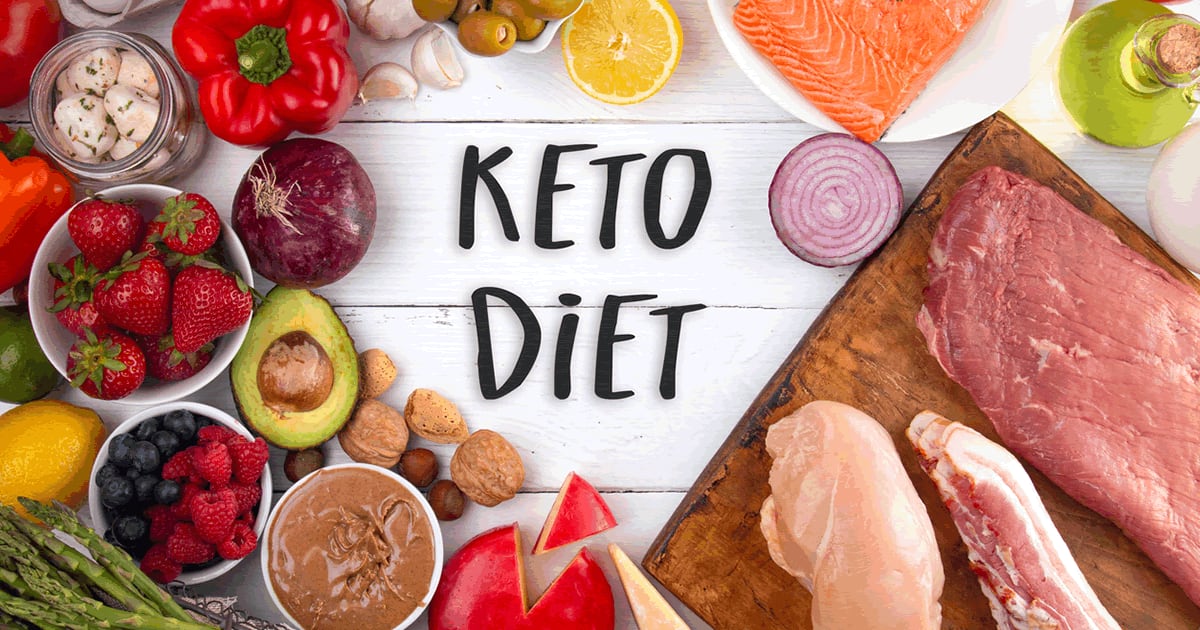As ketogenic diets become more mainstream, research shows what I see in my practice: Done correctly, they get excellent and fast results for weight loss and much more.
I’ve seen folks lose 20, 30, or even more pounds by following a ketogenic diet. Following that first switch from sugar to fat (I talk more about potential challenges, including the keto flu here), they have more energy, feel more mentally focused, and no longer get sidetracked by hunger and cravings that formerly stalled fat loss.
And then, suddenly, without warning, they hit a plateau. The scales won’t budge. As a medical doctor specializing in gut health, nutrition, and functional medicine, almost every patient I see eventually hits a wall. They’re doing everything “correctly,” and still, weight loss comes to a standstill. They feel stuck.
That’s when I shift into detective mode to find underlying obstacles that might hinder weight loss. Sometimes these roadblocks are obvious. Other times, they take some sleuthing.
I see these obstacles occur more often with ketogenic diets compared with other plans. And I became curious to find out why.
These patients initially have success on keto diets but hit a wall at some point and struggle to maintain that plan long term. The clue may require metabolic flexibility and variety to keep the body guessing.
In my practice, I commonly see these 10 reasons people don’t lose weight on ketogenic diets. When you pinpoint what might create obstacles, you become empowered to change course and minimize their impact. Here are the reasons and how I fix them.
1- You’re not supporting your healthy gut bugs
As a gut health doctor, this is my biggest pet peeve about keto diets: They sometimes overemphasize foods high in dietary fat like meat and full-fat dairy at the expense of gut-supporting plant foods.
Knock your gut flora out of balance, and you’re almost sure to hit a plateau since gut health affects weight loss. Even on the strictest keto diet, you can incorporate fermented and cultured foods, including sauerkraut, kimchi, and kefir.
2- You’re not food tracking
Too many “legal” high-calorie foods can sabotage your keto diet. So can lots of other things. One way to pinpoint those potential glitches is through a food journal. One study shows that people who tracked everything they ate lost twice as much weight as those who didn’t track what they ate. A food journal also keeps you honest and compliant with your keto plan.
3- You’re eating too many calories
On a high-fat ketogenic diet, you can easily eat 3,000 calories or more daily with high-calorie foods like cheese and nuts. Sure, your body will shift into ketosis on a high-fat diet, but eating too many calories means your body will utilize dietary fat instead of body fat. A meal diary might assist you in identifying high-calorie items that may undermine your weight reduction efforts. You don’t need to be on an old Atkins diet plan to lose weight the keto way.
4- You’re eating too often
Some patients constantly graze on “legal” keto foods that can stall fat loss. Intermittent fasting is the answer here: You naturally reduce your caloric intake and give your gut a break. By not eating, you’re allowing inflammation to quiet down in your body, which helps with blood sugar balance and weight loss.
As an example, some plans combine daily fasting with a ketogenic diet. Have a big dinner, close up the kitchen, and push breakfast as far back the next morning as you can. I talk more about this type of keto diet, which I call a Cyclitarian plan.
5- You’re not keeping your carb intake low enough
To maintain ketosis (where you burn fat rather than sugar for energy), you need to keep your carbohydrate intake around 20 to 50 grams daily. Some of my patients have to go to the lower end to get those results. That doesn’t mean you can’t incorporate some carbs: You can fit plenty of green vegetables and low-sugar fruits like berries and avocado into even a 20-gram carb allotment.
6- You’re often stressed out
Being constantly stressed keeps your sugar-boosting hormone cortisol jacked up, which not only elevates your blood sugar but also short-circuits fat loss. And let’s be honest: When you’re stressed out, you’re more likely to nose-dive into keto-unfriendly foods, like comfort carbs. Find ways to dial down stress levels. I find even five minutes of shutting my eyes and taking deep and diaphragmatic breaths can give me a renewed focus and take stress down a few notches.
7- You’re not eating enough fiber
Dietary fiber will keep you fuller for longer and contains prebiotic elements that help maintain a healthy gut flora, making it a weight-loss win-win. Inadequate dietary fiber intake (yeah, I’m talking to you, all-meat carnivores and cavemen) alters your good gut flora, leading to increased inflammation, insulin resistance, fat deposition around the midsection, and weight gain. Fiber-rich, keto-friendly meals include leafy green and cruciferous vegetables, avocado, coconut, and berries.
8- You’re eating foods that you’re sensitive to
While keto diets minimize sugar and other food sensitivities, they often allow full-fat dairy such as yogurt that, for some people, can stall fat loss. And some packaged keto-friendly foods (yes, there’s a whole industry of keto-friendly cookies, candy, and other junk food!) can contain gluten, artificial sweeteners, and other reactive ingredients.
These foods and additives cause dysbiosis (an imbalance between good and bad bugs), leaky gut syndrome, and increased insulin resistance, which raises blood sugar levels—stalling weight loss. Read your labels carefully: Food sensitivities can be sneaky and hide in foods that you would never suspect, like mustard.
9- You’re drinking too much Coffee
Bulletproof Coffee is a popular keto beverage. I’m not an anti-coffee, but even drinking black, organic Coffee can increase insulin resistance, making weight loss difficult for some people. I explain why Coffee can stall fat loss (and how to minimize that problem) in this blog.
10- You’re neglecting sleep and other lifestyle factors
If you’re doing everything else right but missing these elements, you’ll stall your progress. Even if you’re strictly following a keto diet, variables like lack of sleep, inactivity, and exposure to environmental pollutants might stymie weight reduction. Weight reduction is influenced not just by what you eat but also by how you live.
For many patients, dialing up sleep, reducing environmental and psychological stressors, and incorporating high-intensity burst training can be big needle movers to overcome plateaus.
Conclusion
I’ve found patients almost always overcome plateaus using these 10 strategies on a ketogenic diet. For a few patients, we finally concluded that a keto diet wasn’t right for them. While they initially lost weight on this plan, the very high fat intake didn’t work long term.
That’s fine since no diet is right for everyone. Keto diet works well for a lot of people, at least in the short term, but what really matters is a plan that you can maintain long term and helps you sustain that weight loss. And that will differ for every person. In the meantime, use these 10 strategies as a first step to bust through your weight loss plateau.





